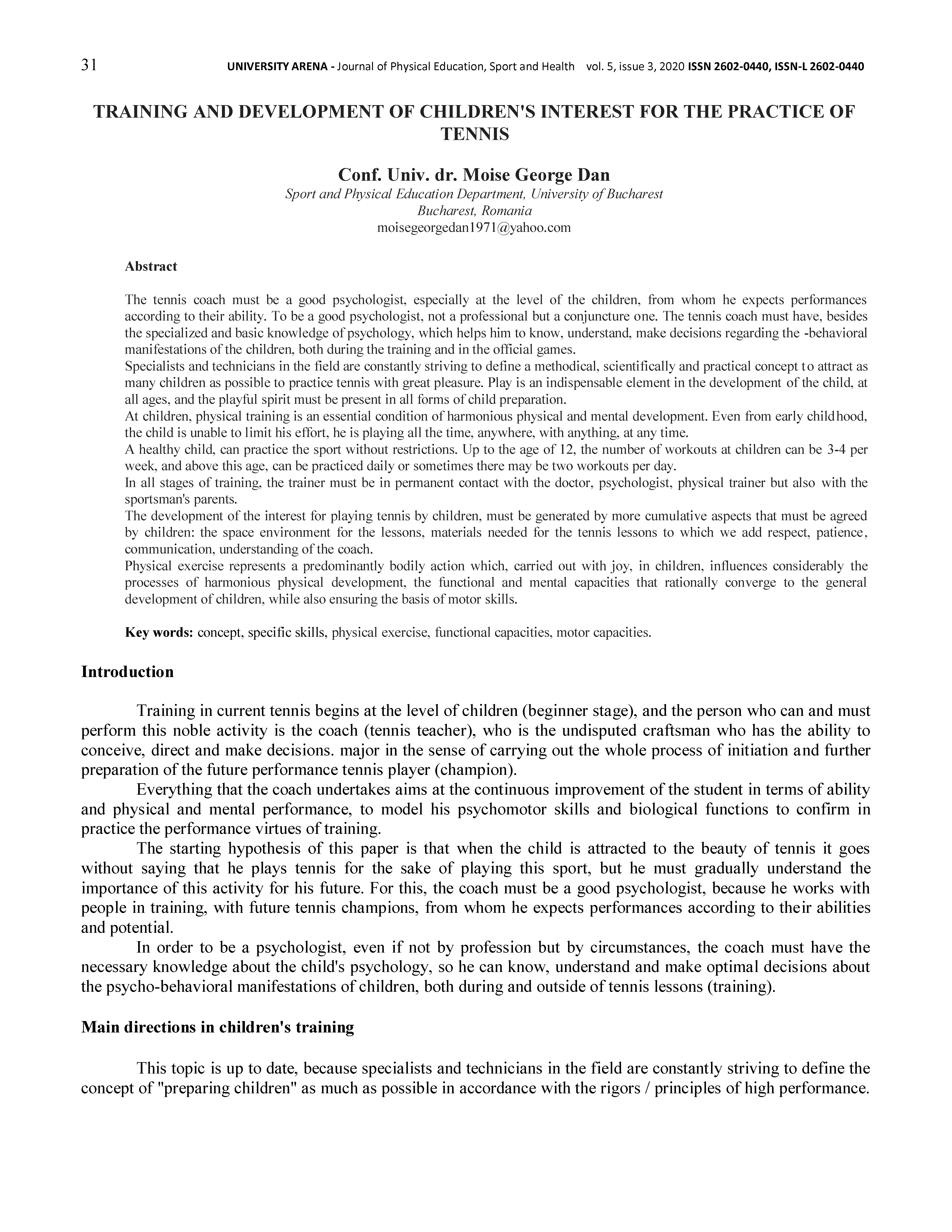TRAINING AND DEVELOPMENT OF CHILDREN'S INTEREST FOR THE PRACTICE OF TENNIS
DOI:
https://doi.org/10.62229/UaV_3_20-5Keywords:
concept, specific skills, physical exercise, functional capacities, motor capacitiesAbstract
The tennis coach must be a good psychologist, especially at the level of the children, from whom he expects performances
according to their ability. To be a good psychologist, not a professional but a conjuncture one. The tennis coach must have, besides
the specialized and basic knowledge of psychology, which helps him to know, understand, make decisions regarding the -behavioral
manifestations of the children, both during the training and in the official games.
Specialists and technicians in the field are constantly striving to define a methodical, scientifically and practical concept to attract as
many children as possible to practice tennis with great pleasure. Play is an indispensable element in the development of the child, at
all ages, and the playful spirit must be present in all forms of child preparation.
At children, physical training is an essential condition of harmonious physical and mental development. Even from early childhood,
the child is unable to limit his effort, he is playing all the time, anywhere, with anything, at any time.
A healthy child, can practice the sport without restrictions. Up to the age of 12, the number of workouts at children can be 3-4 per
week, and above this age, can be practiced daily or sometimes there may be two workouts per day.
In all stages of training, the trainer must be in permanent contact with the doctor, psychologist, physical trainer but also with the
sportsman's parents.
The development of the interest for playing tennis by children, must be generated by more cumulative aspects that must be agreed
by children: the space environment for the lessons, materials needed for the tennis lessons to which we add respect, patience,
communication, understanding of the coach.
Physical exercise represents a predominantly bodily action which, carried out with joy, in children, influences considerably the
processes of harmonious physical development, the functional and mental capacities that rationally converge to the general
development of children, while also ensuring the basis of motor skills.


